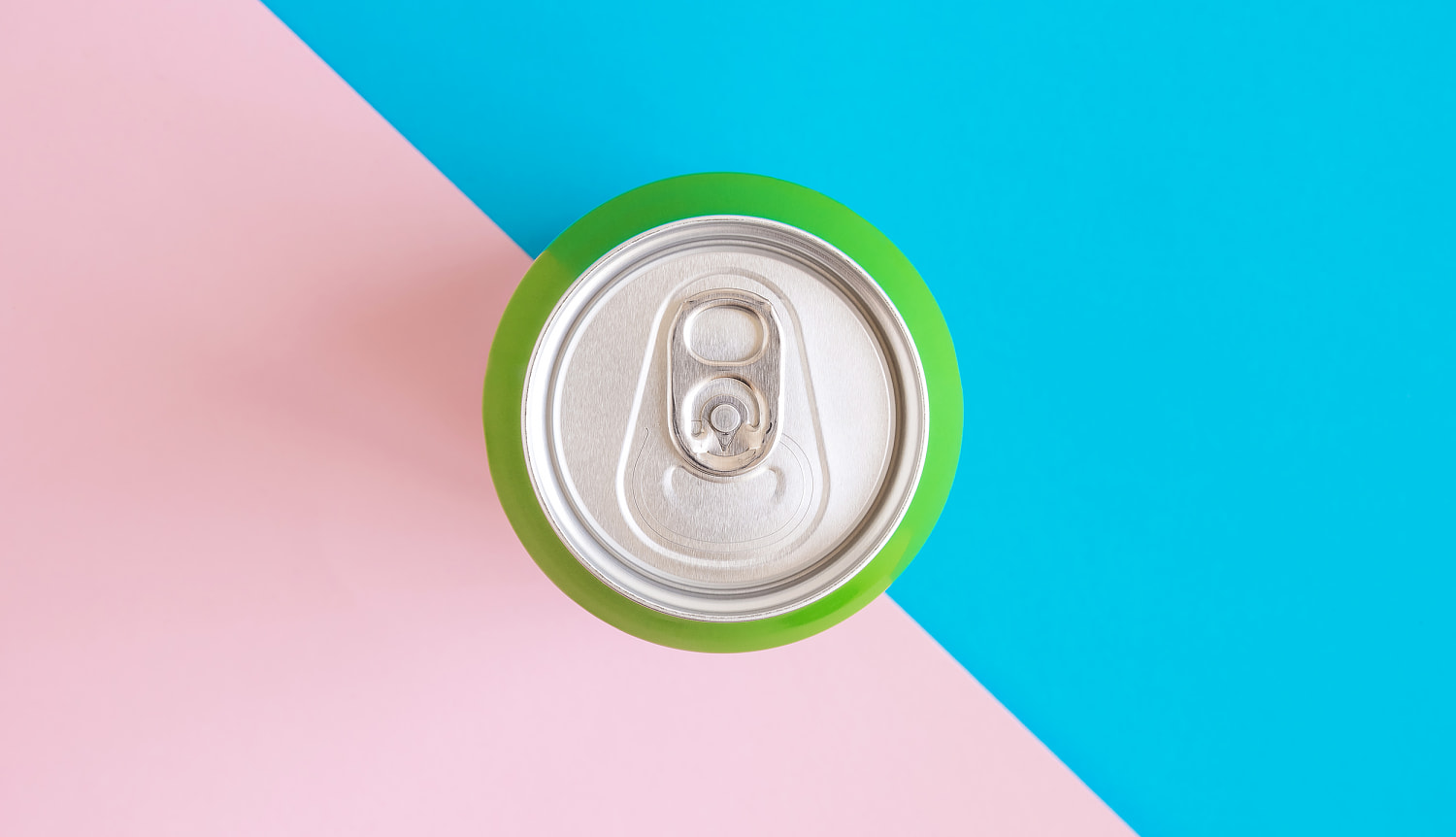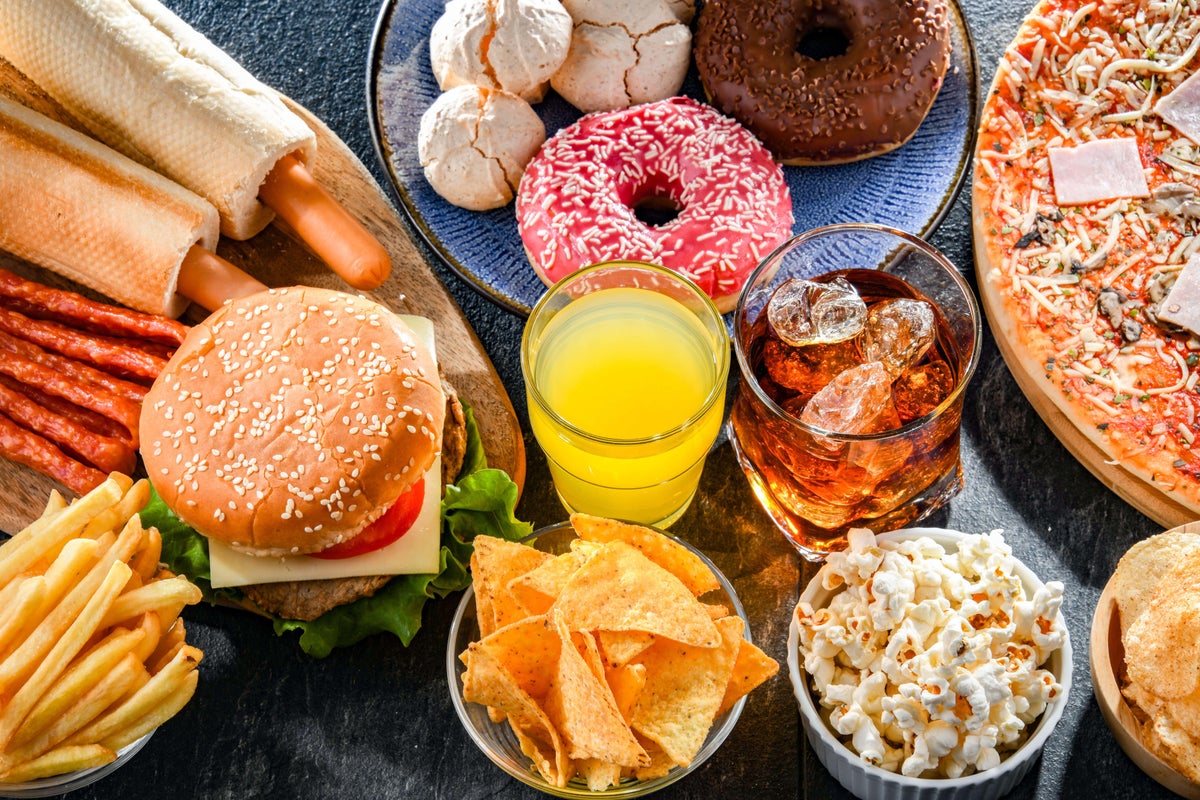Prebiotic sodas are the latest rebranding of a historically not-so-good-for-you drink: Soda. The trendy sodas come in a variety of flavors, from traditional cola to lemon-lime. Fortified with prebiotic fibers, these carbonated beverages are often marketed as a healthier alternative to classic soft drinks.
They also promise to benefit gut health. Prebiotics are not new, but the plant-derived fibers are increasingly being added to foods and drinks. Unlike the usual options in the soda aisle, come with less sugar and supposed health benefits.

They aren't cheap, either. It begs the question: are prebiotic sodas actually good for you or is it all hype? We spoke to experts to find out — but first, let's dig into what prebiotics are and how they work in the body. Prebiotics are a type of fiber that the human body cannot digest, Hariom Yadav, PhD, director of the University of South Florida Center for Microbiome Research, tells TODAY.
com. Instead, these non-digestible fibers act as food for the beneficial bacteria in our gut. “Our digestive system does not break down (prebiotics).
.. that’s why they go into the lower part of the gut, where the microbiome is, so the microbes can ferment or eat them,” says Yadav.
Since they mostly feed good bacteria, prebiotics promote a healthier gut microbiome, he adds. The fermentation process in the gut also produces beneficial metabolites which support overall health. Prebiotics are naturally found in fruits, vegetables, legumes, whole grains and other plant-based foods.
They are also available in supplements and added to food products. Prebiotic sodas are carbonated soft drinks with added prebiotic fibers. The type of prebiotic fiber, the amount of it and the other ingredients in the soda varies.
Inulin is a form of prebiotic fiber that's commonly used in these sodas, says Dr. Lisa Ganjhu, a gastroenterologist at NYU Langone Health, tells TODAY.com.
The inulin added to these sodas typically comes from the agave plant or chicory root, says Ganjhu. Inulin is a type of soluble fiber, that easily dissolves in drinks, Yadav adds. Prebiotic sodas can contain anywhere from two to nine grams of prebiotic fiber per can, depending on the brand, according .
The sodas may contain sweeteners and other natural or artificial flavorings. Although they share similar names, prebiotics and probiotics aren’t the same. Probiotics are live microorganisms, says Yadav, including bacteria and yeast.
Therefore, probiotic sodas would contain live microorganisms as well. help strengthen the microbiome creating more diversity in the microorganisms that live in the digestive tract, the experts note. Our body is home to trillions of microbes, good and bad.
The bad microbes can cause disease, so we need a balance to stay healthy. Probiotics help maintain this balance by increasing and strengthening the good bacteria. Probiotics have been shown to help improve digestion, promote nutrient absorption, boost immunity, and support other bodily functions, TODAY.
com previously reported. There are different strains of probiotics that have different effects on the body. Probiotic sodas may include one or more strains.
Prebiotics help support overall health and may have a number of benefits when consumed at a sufficient dose, Kelly Swanson, PhD, director of the division of nutritional sciences at the University of Illinois Urbana-Champaign, tells TODAY.com. Consuming adequate amounts of prebiotic fiber may help: The benefits of prebiotics largely come from the way they're broken down by the gut.
"When the good bacteria eat these prebiotic fibers, they break them down into small metabolites, the most common is called short-chain fatty acids," says Yadav. Short-chain fatty acids are absorbed by the gut and into the bloodstream, where they have many beneficial health effects, Yadav adds. Short-chain fatty acids are the primary source of fuel for epithelial cells, which line the surface of the intestinal tract, says Yadav.
These cells create a gut barrier that allows for the absorption of nutrients, such as calcium, while protecting against pathogens. Short-chain fatty acids also help support immune cells, stimulate metabolism and promote bone health, Yadav adds. Scientists are still learning more about the health effects of prebiotics.
While research does suggest prebiotics have benefits, because of the various strains and doses, it's difficult to know exactly how much you need or which types are most beneficial. There’s no standard recommended dosage for prebiotics, but many experts recommend three to five grams of prebiotic fiber per day. Generally, adults should aim to get around 25–40 grams of total dietary fiber per day to support normal gut function, says Yadav.
In addition to soluble fiber, such as the inulin found in foods and added to prebiotic sodas, people should also consume insoluble fiber, Yadav points out. Insoluble fiber is a type of fiber that does not dissolve in water. It adds bulk to stools and helps promote regular bowel movements, per .
Prebiotic sodas are generally safe to consume. “If you enjoy it, there’s nothing wrong with it, the sodas won’t hurt you. And they definitely have less calories and sugar, so they’re better than regular soda,” says Ganjhu.
While these prebiotic fiber-enhanced drinks are a healthier alternative to traditional sodas, there is limited evidence to support many of the claims about their health benefits, the experts note. “I can’t say that these prebiotic sodas are therapeutic,” says Ganjhu. “Anything labeled ‘prebiotic’ people think is great.
Everyone wants ‘good’ soda. But it’s just another beverage,” Ganjhu adds. While the added prebiotic fibers in sodas may help some people meet their intake, it's unclear whether this benefits gut health.
The amount of prebiotic fibers added to these sodas can vary. Some brands may contain too small an amount to have meaningful effects on the body. More testing of products and research is needed, the experts note.
“Studies should be conducted to verify that these beverages provide benefits similar to that of foods or supplements that have been studied," Swanson adds. Other ingredients and factors can influence the healthfulness of prebiotic carbonated beverages. "The dosage per serving, effects of processing, format and stability of the final product, and presence of other nutrients and substances must all be considered," says Swanson.
For example, even if a hefty dose of prebiotic fiber is initially added to soda, processing and storage could potentially degrade these prebiotics. If you're already healthy and eating a varied diet, you're probably getting enough prebiotic fiber already, the experts note. “When you are taking prebiotics, they are more of a supplement, so they are not a replacement for food,” Yadav adds.
Prebiotic sodas could help or worsen an upset stomach, depending on the person. While some people find that carbonated beverages can help settle their stomach, too many bubbles can cause gassiness and discomfort for others, says Ganjhu. Large doses of prebiotic fiber, such as inulin, may cause flatulence, bloating and nausea, the experts note.
Some people may not feel the effects of prebiotic fiber at all. "Each one of us has a very distinct microbiome housed in our gut," says Yadav. If you’re looking to get more prebiotic fiber, you don’t need to drink expensive fortified soda, the experts note.
You can easily get enough prebiotics, along with other types of fiber and nutrients, from whole foods. The best way to support your gut microbiome is by eating a varied diet including fruits, vegetables and whole grains, Swanson notes. Additionally, whole foods often provide more than one type of prebiotic or dietary fiber.
A 2023 study from researchers at found that the foods highest in prebiotics were onions, Jerusalem Artichokes, garlic, leeks and dandelion greens. As little as half of a small onion provides enough prebiotics (five grams) for one day. The researchers also found that consuming these plants, which contain multiple forms of prebiotics, leads to a larger total prebiotic intake overall.
"Prebiotic intake can also be boosted by eating prebiotic-containing breakfast cereals and bars, muffin mixes, bread and other (fortified) foods," says Swanson. Additionally, Ganjhu recommends eating probiotic-rich foods to support your gut health. These include yogurt, kimchi, and sauerkraut.
Limiting sugar can also help support a healthy gut microbiome. Caroline Kee is a health reporter at TODAY based in New York City. She covers a range of medical news, consumer health, and wellness topics.
.
Health

What is prebiotic soda? Experts on whether there are health benefits

Prebiotic sodas are popular for gut health. But do they actually have benefits? Experts discuss how these drinks with prebiotic fiber affect the microbiome.















